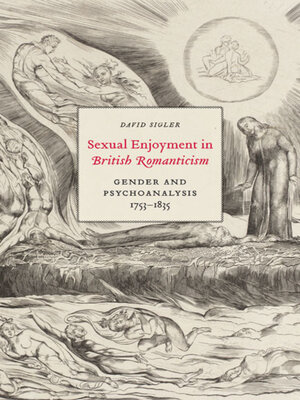Sexual Enjoyment in British Romanticism
ebook ∣ Gender and Psychoanalysis, 1753-1835
By David Sigler

Sign up to save your library
With an OverDrive account, you can save your favorite libraries for at-a-glance information about availability. Find out more about OverDrive accounts.
Find this title in Libby, the library reading app by OverDrive.



Search for a digital library with this title
Title found at these libraries:
| Library Name | Distance |
|---|---|
| Loading... |
Debates about gender in the British Romantic period often invoked the idea of sexual enjoyment: there was a broad cultural concern about jouissance, the all-engulfing pleasure pertaining to sexual gratification. On one hand, these debates made possible the modern psychological concept of the unconscious - since desire was seen as an uncontrollable force, the unconscious became the repository of disavowed enjoyment and the reason for sexual difference. On the other hand, the tighter regulation of sexual enjoyment made possible a vast expansion of the limits of imaginable sexuality. In Sexual Enjoyment and British Romanticism, David Sigler shows how literary writers could resist narrowing gender categories by imagining unregulated enjoyment. As some of the era's most prominent thinkers - including Edmund Burke, Mary Wollstonecraft, Mary Robinson, Joanna Southcott, Charlotte Dacre, Jane Austen, and Percy Bysshe Shelley - struggled to understand sexual enjoyment, they were able to devise new pleasures in a time of narrowing sexual possibilities. Placing Romantic-era literature in conversation with Lacanian psychoanalytic theory, Sexual Enjoyment in British Romanticism reveals the fictive structure of modern sexuality, makes visible the diversity of sexual identities from the period, and offers a new understanding of gender in British Romanticism.







